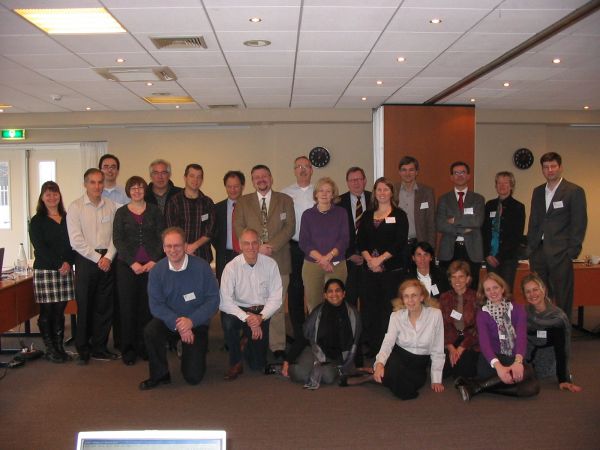Standards of care and the management of FSHD patients
Location: Naarden, The Netherlands
A meeting comprising 26 clinicians, basic scientists and patient representatives gathered on 15-17 January 2010, in Naarden, The Netherlands. Delegates worked in 6? ENMC member states and 2? non-member states. This was the first ENMC workshop specifically dedicated to facioscapulohumeral muscular dystrophy (FSHD) since 1996.
FSHD is the third most common muscle disorder, no definite cure exists, but symptomatic treatment approaches are available. Major progress has been made recently in the genetic aspects of the disease. We brought together patient representatives, clinicians and scientists with two goals: 1. to define standards of care and 2. to discuss what is needed to lay the foundation for future treatments.
1. Care of the patient with FSHD starts with making the right diagnosis, in the outpatient clinic as well as in the laboratory. To that end, clinical diagnosis, genetic criteria, counselling of patients and families, prenatal and pre-implantation diagnosis and pregnancies were discussed. In addition, pain, fatigue and falls, were discussed as were non-muscle manifestations , such as lung problems and the mostly subclinical manifestations of the eye, ear, and heart. In addition to discussion of the management of the above manifestations, recommendations were discussed in relation to exercise training, orthopaedic interventions, rehabilitation, physiotherapy, occupational therapy and speech therapy.
2. The second part of the workshop was dedicated to “clinical trial readiness”. In other words, what are the elements necessary to conduct efficient and successful therapeutic trials in FSHD? We discussed “where are the patients, and how can we find them?” and “how can we measure the effect of treatment in FSHD patients?” The subjects included: the available patient registries, functional outcome measures, strength measurement, and patient reported outcome measures. In addition, we discussed the various FSHD initiatives around the globe: the Fields centre, FSHD Europe family group, and opportunities for FSHD research within TREAT-NMD.
On the last day, we reached consensus about 19 standards of care statements and we identified 9 areas where future work is needed, ranging from harmonisation of the Italian, Dutch, French, American, and UK registries to development of biomarkers of the disease. For this purpose subgroups were formed to address unresolved issues and agreement was reached to reconvene in about 1 year.
A full report of this workshop is be published in NMD. (pdf)

